Putin may have passed point of no-return over Ukraine
By Timothy Heritage
MOSCOW (Reuters) - Vladimir Putin risks becoming an international pariah over the Ukraine crisis but the Russian president is battening down the hatches for the gathering economic and political storm.
The United States and the European Union saw the downing of Malaysian Airlines flight MH17 as a chance for Putin to distance himself from pro-Russian separatists in east Ukraine and seal the border across which they say arms are reaching the rebels.
Instead Putin has stood firm, blamed the crash on his pro-Western antagonists in Kiev and signaled no change in his stance, leaving Russia facing the threat of much tougher international sanctions and economic and political isolation.
With an about-turn all but impossible for Putin after a fierce media campaign that has demonized the West, painted Ukraine's leaders as fascists and backed the rebels to the hilt, he appears to have passed the point of no-return.
"I think our state leadership is very experienced but I don't think it assessed the West's mentality properly," veteran political commentator Nikolai Svanidze told Ekho Moskvy radio.
"We know the character of the people we are talking about, President Putin's character," he said. "There will be no apologies."
The deaths of 298 people on flight MH17 on July 17 have hardened the West's stance, narrowing differences between the EU and Washington over sanctions and, importantly, reducing the resistance of the powerful German business lobby.
Despite this, Putin looks unwilling or unable to change a strategy that has sent his popularity to record highs in Russia, particularly since the annexation of the Crimea peninsula from Ukraine in February fueled a wave of patriotic fervor.
BLAME GAME
The president showed one, rare moment of uncertainty after the airliner went down, looking tired, pale and unusually unsure of himself in a television appearance in the early hours of July 21.
But he came out fighting at a meeting with security chiefs the following day, saying he would use Russia's influence with the rebels but also launching a diatribe against the West. He said Kiev was to blame because it had resumed military operations after a ceasefire. He neglected to say the rebels had defied the truce.
Since then Putin has said little on the crisis in public beyond suggesting Russia's defense industry must become self-reliant and stop using Western parts.
Western leaders would like to believe he is rethinking his strategy and looking for a way out of the crisis after boxing himself into a corner, but opinion polls suggest Russians want Putin to do exactly the opposite.
He is more likely to hold out against what he and state media have depicted as a Western-inspired coup d'etat that toppled a Ukrainian president sympathetic to Moscow and, using a phrase from the Cold War, was intended to "contain" Russia.
Political analyst Alexander Morozov said Putin could have headed off the West by distancing himself from the separatists but he saw no political dividends from doing so and it may already be too late for this. He has missed the moment, Morozov said.
New research by the independent Levada Centre polling group shows 64 percent of Russians blame the West for the Ukrainian conflict, 61 percent are not worried by sanctions and 63 percent think Russian media coverage of the crisis is objective.
"Everything so far points to a further hardening in Russia's stance. Mr Putin has too much invested - both from a geopolitical and, just as importantly, domestic political standpoint - in his standoff with the west to be swayed by sanctions alone," said Nicholas Spiro, Managing Director of Spiro Sovereign Strategy, a London-based consultancy.
"The MH17 crash... is forcing him to harden his anti-Western stance much sooner than he would have liked. Mr Putin doesn't want to burn his bridges with Europe's main economies - but he may now be forced to do just that."
THREAT TO RUSSIA'S ECONOMY
Putin's dilemma is that if he adopts a Plan B on Ukraine now he risks looking weak in Russia and could suffer a fall in public support that could damage his chances of re-election for a further six years in 2018.
But failing to change tack could have a detrimental impact on Russia's economy if the United States and EU push ahead with tougher, sectoral sanctions against Moscow.
This could put at risk the improvement in living standards and the financial well-being of many urban Russians, one of the pillars on which Putin built his support during his first spell as president from 2000 until 2008.
It could underline his opponents' concerns that Putin's third term as president, which began in 2012, is undoing some of the progress made toward financial stability and Western-style democracy since the Soviet Union collapsed in 1991.
It is, however, a gamble he seems prepared to take.
Russia's $2 trillion economy is already teetering on the brink of recession and recorded zero growth in the second quarter of this year. The rouble is shaky and capital flight has accelerated to $75 billion this year.
But, for now at least, Russian business leaders are not speaking out against Putin because alienating the president could cause more damage to their firms than the sanctions themselves. Many back him anyway.
There was, for example, a defiant reaction on Tuesday to a ruling by an international arbitration court in The Hague that Russia must pay $50 billion for expropriating the assets of oil company Yukos, whose former owner Mikhail Khodorkovsky fell out with Putin.
On his radio show "Fifth Argument", host Vladimir Averin asked whether it was time for Russia to pull out of such international courts in The Hague, Stockholm, London and Vienna. In a spot poll, more than 78 percent of listeners said "yes".
LONE VOICES
One respected figure has, however, spoken out about the growing threat of isolation.
"I have serious concerns that the escalation of the conflict around Ukraine will be followed by conclusions ... that we do not need the world's best practices," former Finance Minister Alexei Kudrin said last week. "Such an attitude, of course, inhibits seriously the modernization of Russia."
As a friend of Putin, Kudrin is almost alone in being able to issue such criticism without paying a political price. But there are also other, clear signs of companies and institutions planning for tough times ahead.
Russia's central bank raised its key interest rate on Friday in a sign of concern that new sanctions could speed up capital flight from Moscow's already struggling financial markets.
Russia's biggest oil producer, Rosneft, said the same day that it had been working on a plan to offset the negative effect of sanctions - something other firms are sure to have been doing as well.
Kremlin officials last week poured scorn on Kudrin's warning, saying growth was intact and suggesting his comments were overly dramatic.
But in a new sign of the looming problems, oil and gas producer BP - by far the largest investor in Russia with its 19.75 percent stake in Rosneft - said on Tuesday further Western sanctions could affect its business in Russia, where it makes about a third of its crude oil output.
Foreign equity and bond investors, who had tentatively ventured back into Russia after a huge early-2014 selloff, are also again cutting their holdings.
"The expansion of personal sanctions ... is the most painful answer so far to the actions of the Putin regime," Boris Vishnevsky, a St Petersburg regional politician, said of the latest list of individuals close to Putin who face asset bans and visa freezes under sanctions.
"Economic sanctions ... will inevitably affect not so much 'Putin's friends' but all other Russian citizens. Because it will lead to the collapse of the Russian economy and living standards."YAHOO NEWS
(This story has been refiled to fix word in paragraph three)
(Additional reporting by Elizabeth Piper and Lidia Kelly; editing by Janet McBride)

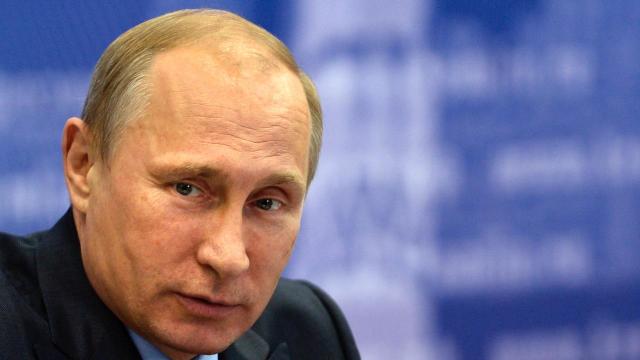

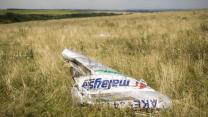
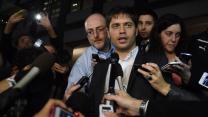
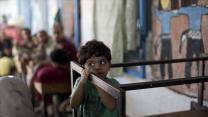
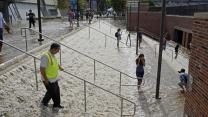
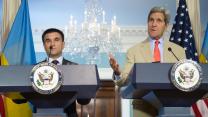
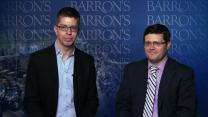
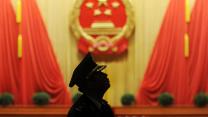
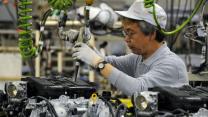

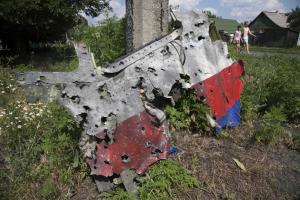
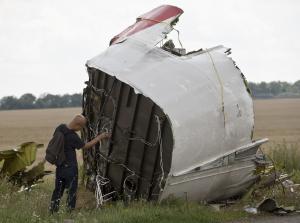

No comments:
Post a Comment